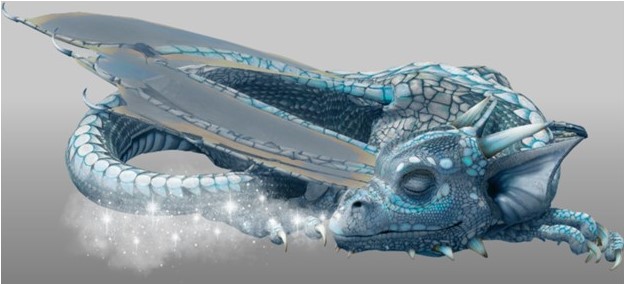
OASV Blog Editor
January 19, 2023
The Paradox of Powerlessness
I define addiction as the overpowering compulsion to do something that I know is going to hurt me. As an active addict, I lost the power to NOT eat food that I don’t even want to eat! Compulsive overeating is not just a bad idea; it is an addiction to substances and behaviors that affect far more than a number on a scale. Compulsive overeating is an addiction just like other substance addictions to alcohol, drugs, nicotine, etc. Compulsive overeating also has behavioral components similar to an addiction like gambling. The rituals and routines associated with compulsive overeating (like buying binge foods, purging, over-exercising, and other behaviors) are aspects of this disease.
I imagine my disease of compulsive overeating as a voracious dragon who tells me excess food will make me feel better when, really, excess food is going to make me feel terrible and eventually kill me. When I use my addictive foods to nurture myself or avoid some unpleasant feeling, I inflict more discomfort, both physical and emotional. I can never eat enough to silence the dragon’s demands. However, when I put down my addictive food and start working the 12-step program of recovery, the dragon goes to sleep. At first, the dragon wakes easily at the slightest hint of one of its foods, but as long as I abstain, it sleeps more soundly. I can never kill the beast. It continues to grow in its slumber, and if I wake it up, it is as if I never put it to sleep.
Powerlessness in 12-step recovery can seem paradoxical. For example, if I have no power over my addictive substance, how can I expect to stop using it? The answer is in the 12 Steps. I am powerless over food and am soon overwhelmed by the consequences to my body, to my self-image, and in my relationships. Dealing with powerlessness means (1) admitting my powerlessness over the foods that I cannot stop eating after I take the first bite and (2) letting go of the crazy excuses I fabricate regarding the consequences of my addiction. The medical profession likes to refer to the physical consequences as “vital signs.” Step 1 expresses these and other consequences as “unmanageability.”
Once I get past denial and admit that I am an addict, Step 2 tells me that a Higher Power of my understanding can restore me to sanity. I admitted that my addiction to food is crazy and became willing to define a Higher Power that makes sense to me. The 12 Step program of recovery depends on spiritual principles and practice, which individual members define for themselves. Then, in Step 3, I make a decision to let my Higher Power provide the answers to my powerlessness.
Many slogans exist regarding surrender in recovery. One that occurred to me early in my recovery is that surrender is the action of giving up, not giving in. Other slogans include “Let go and let God” and “Surrender is joining the winning side.” I’m so grateful that my Higher Power whispered to me, at my first OA meeting, “If you are going to be a member of this fellowship, you have no business eating chocolate.” Through my Higher Power, I have been able to surrender (give up) my preferred drug of choice from day 1 of my participation in program.
I am powerless over food, but I am not helpless. I can shop for and prepare abstinent food that will not wake up the dragon. I can call program friends for help. I can work with a sponsor through the steps to learn how the program can help me deal with aspects of my past and current behaviors and thought patterns that do not serve me.
I am powerless, but I am not hopeless. HOPE stands for Hearing Other People’s Recovery. I hear stories of recovery at every meeting I attend. As I continue to heal, I know deep down that I deserve to recover; I have lots of hope for continued growth.
I am powerless, but I am not worthless. My spiritual recovery in OA convinces me that I have intrinsic value as a human being regardless of my past mistakes and unfortunate messages from my childhood.
I am powerless, but I am not reckless. I’ve been reckless in the past, enrolling in extreme and expensive weight-loss schemes and engaging in some risky behaviors in attempts to exert power over compulsive overeating – vain, harsh, futile attempts to control the dragon. I’ve found that the steps and traditions of the 12 Step program provide a gentle, patient approach to living life on life’s terms, and put that dragon to sleep.
A gentle disclaimer: I am a recovering compulsive overeater with over 29 years in OA. These comments are based on my personal experience, strength, and hope gained through working the 12 Steps and Traditions and using the tools of the program.
~Julie T.
